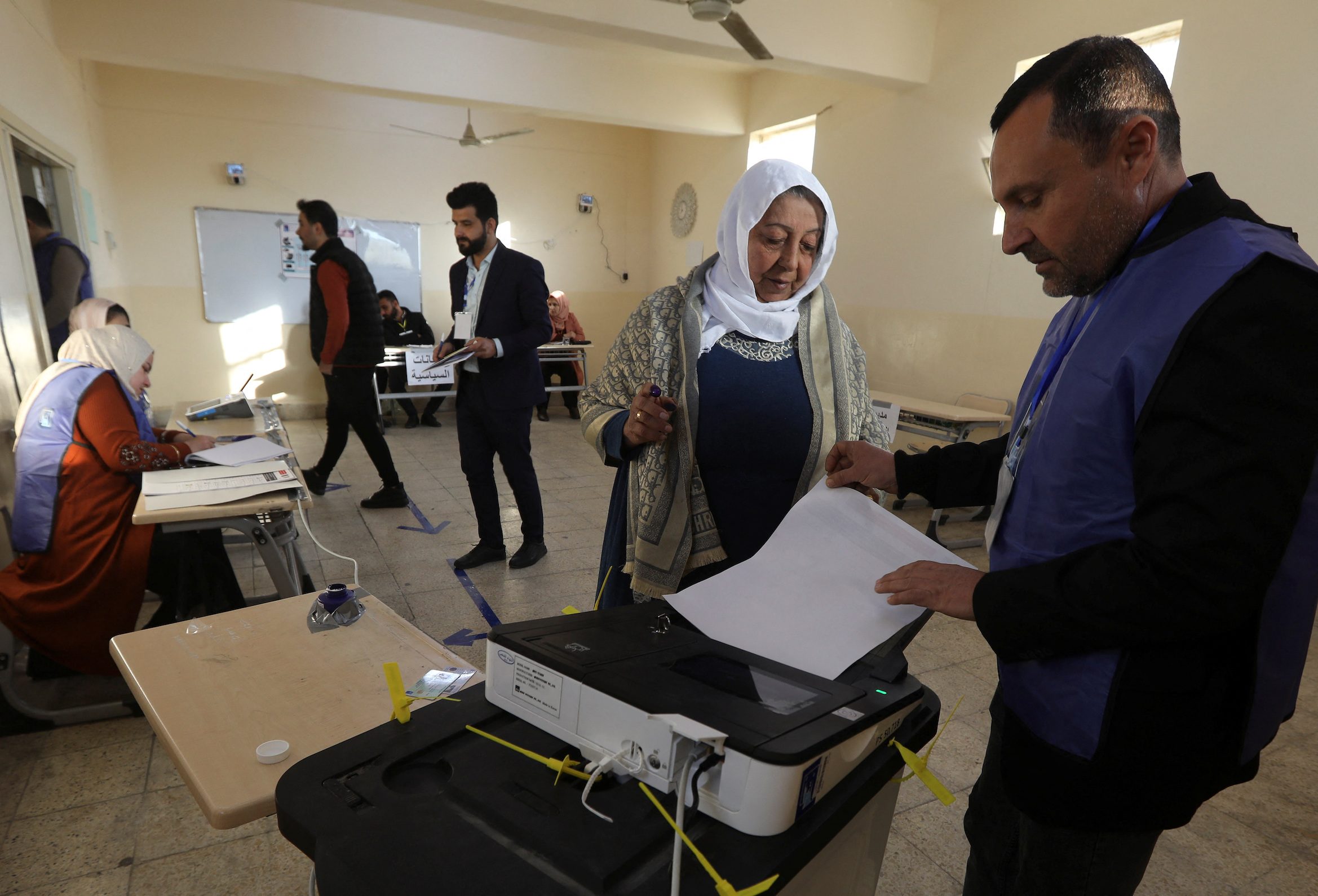SUMMARY
This is AI generated summarization, which may have errors. For context, always refer to the full article.

BAGHDAD, Iraq – Iraqis voted on Monday, December 18, in the first provincial council elections in a decade, with the ruling Shi’ite Muslim alliance likely to extend its hold on power amid a boycott by populist cleric Moqtada al-Sadr, its main political rival.
The vote is seen as a test of Iraq’s young democracy – installed by the US after the toppling of Saddam Hussein in 2003 – before 2025 parliamentary polls that will determine the balance of power in a nation where groups close to Iran have gained influence recently.
Polls closed at 6 pm local time (1500 GMT) after 12 hours of voting that passed with no major security incidents and reports of low turnout.
Voter apathy has increased among a mostly young population that feels it has not seen the benefits of Iraq’s massive oil wealth, much of which is misdirected or stolen in a country ranked among the world’s most corrupt.
Senior politicians called for a high turnout after casting their votes at a plush center in one of Baghdad’s best hotels.
More than 16 million Iraqis registered to vote on Monday, fewer than in 2021’s parliamentary polls, when authorities said 22 million were eligible. Turnout then was 41% of eligible voters.
Preparing a cup of sweet tea by his kiosk near a polling center in central Baghdad, Ali Aswad, 39, said voting was a waste of time.
“I won’t vote any more. They have been telling us democracy will help improve our lives but nothing happened,” he said.
“Elections are a competition of words without actions and democracy is a big lie.”
Some voters, however, retain faith in the system.
“I have never missed a chance to vote since 2005 because I believe in change,” said Aqeel al-Assadi, a 58-year-old high school headmaster. “One day democracy will be served; if not for us, then for our children.”
Local elections last took place in 2013. They were postponed because of the war against Islamic State militants who took over large parts of Iraq but were eventually defeated.
Security in the country has improved and public focus has shifted to decrepit government services, high unemployment and rampant corruption – issues at the heart of 2019 mass protests that were violently suppressed by security forces.
Observers are closely watching the oil city of Kirkuk, where elections are taking place for the first time since 2005 and tensions between ethnic groups – including Kurds, Arabs and Turkmen – recently escalated into deadly violence.
Growing power
Sadr’s Shi’ite rivals are likely to take control of most local councils, especially in the mainly Shi’ite southern provinces.
This would further consolidate the power of the ruling Shi’ite alliance, which is close to Iran and known as the Coordination Framework, via access to state oil wealth that can be spent on local projects and services.
The alliance forms the single-largest bloc in parliament after members of Sadr’s party withdrew.
Sadr, a populist who has positioned himself as a staunch opponent of Iran and the United States, has said the elections would reinforce the dominance of a corrupt political class.
Voting took place in 15 of Iraq’s 18 provinces to select 285 council members who appoint powerful provincial governors and oversee local administration.
Members of the Shi’ite alliance are running on several lists – with former Prime Minister Nouri al-Maliki forming his own list and Iran-backed groups with armed wings running another – but have said they will rule together.
The country’s two most powerful Sunni Muslim leaders, ousted parliament speaker Mohammed Halbousi and business mogul Khamees Khanjar, are running together.
Sajad Jiyad, an Iraqi analyst and fellow at The Century Foundation think tank, said the expected low voter turnout was not a threat to the political order.
“The political elite are not too fussed, they are not too concerned,” he said.
“(Among the public) there is a sense that election results don’t really matter because, in the end, it’s the same faces who will ultimately dominate politics.” – Rappler.com
Add a comment
How does this make you feel?
There are no comments yet. Add your comment to start the conversation.